Business
Job growth in government exceeded the private sector in 8 out of 10 provinces from 2019-23

From the Fraser Institute
By Ben Eisen and Milagros Palacios
In eight of 10 provinces the rate of government job growth has been higher than the private sector, finds a new study published today by the Fraser Institute, an independent, non-partisan Canadian public policy think-tank.
“Canada’s net job creation in recent years has been disproportionately driven by growth in government employment rather than growth in the private sector, and as of 2019, government employment as a share of total employment in the country is at its highest point since the mid-1990s,” said Ben Eisen, Fraser Institute senior fellow and co-author of Economic Recovery in Canada before and after COVID: Job Growth in the Government and Private Sectors.
The study finds that historically, no other recent era of recession and recovery in Canada have been so dominated by government sector job growth compared to private sector job growth.
During the recession and recovery periods related to the COVID-19 recession (2019-2023), government employment across the country, including federal, provincial and municipal increased by 13.0 per cent compared to just 3.6 per cent in the private sector (including self-employment.)
In every Canadian province save for Alberta and Nova Scotia, employment in the government sector expanded at a higher rate than the private sector. In BC, employment growth in the private sector (including self-employment) rose only by 0.5 per cent during the period compared to 22.0 per cent in the government sector. Ontario’s public sector experienced triple the growth the private sector had, with 14.6 per cent and 4.8 per cent, respectively.
The study also compares the current recession and recovery in Canada to the United States, where the private sector has generated a large majority of all new jobs in recent years. In Canada, the government sector is responsible for 46.7 per cent of total job growth from 2019-203 compared to 16.1 per cent in the United States.
“Canada has seen a much higher rate of job growth in the government sector than the private sector in recent years, which is a concerning trend given that job growth and wealth creation in the private sector are needed to finance the activities of governments,” said Eisen.

- Several past analyses published by the Fraser Institute have shown that in recent years net job creation in the government sector has dramatically outstripped private-sector job creation.
- This publication updates these data, showing that during the recession brought on by the COVID-19 pandemic and the following recovery (2019–2023), government employment has increased by 13.0% while employment in the private sector (including self-employment) increased just 3.6%
- We further expand past analysis by comparing the ongoing recovery from the COVID-19 recession to past periods of economic recession and recovery.
- We find that the extent to which the current economic recovery is driven by government job growth is historically unusual. We compare the current economic environment to five past economic recessions and slowdowns and find that none of those recoveries were nearly as reliant on job creation in the government sector.
- We also compare the current recession and recovery in Canada to that in the United States, which differs sharply. In the United States, the private sector has generated a large majority of all new jobs in recent years and the rate of net job creation in the private sector has been nearly identical to that in the government sector.
- As a result of disproportionately faster growth in the public-sector employment, government’s share of employment post-COVID is higher than at any point since the fiscal consolidations of the 1990s.
Authors:
Business
Canada holds valuable bargaining chip in trade negotiations with Trump

From the Fraser Institute
By Alex Whalen and Jake Fuss
On the eve of a possible trade war with the United States, Canadian policymakers have a valuable bargaining chip they can play in any negotiations—namely, Canada’s “supply management” system.
During his first day in the Oval Office, President Donald Trump said he may impose “25 per cent” tariffs on Canadian and Mexican exports into the United States on Feb. 1. In light of his resounding election win and Republican control of both houses of congress, Trump has a strong hand.
In response, Canadian policymakers—including Prime Minister Justin Trudeau and Ontario Premier Doug Ford—have threatened retaliation. But any retaliation (tariffs imposed on the U.S., for example) would likely increase the cost of living for Canadians.
Thankfully, there’s another way. To improve our trade position with the U.S.—and simultaneously benefit Canadian consumers—policymakers could dismantle our outdated system of supply management, which restricts supply, controls imports and allows producers of milk, eggs and poultry to maintain higher prices for their products than would otherwise exist in a competitive market. Government dictates who can produce, what can be produced, when and how much. While some aspects of the system are provincial (such as certain marketing boards), the federal government controls many key components of supply management including import restrictions and national quotas.
How would this help Canada minimize the Trump threat?
In the U.S., farmers backed Trump by a three-to-one margin in the 2024 election, and given Trump’s overall views on trade, the new administration will likely target Canadian supply management in the near future. (Ironically, Trump has cried foul about Canadian tariffs, which underpin our supply management system.) Given the transactional nature of Trump’s leadership, Canadian negotiators could put supply management on the negotiating table as a bargaining chip to counter demands that would actually damage the Canadian economy, such as Trump’s tariffs. This would allow Trump to deliver increased access to the Canadian market for the farmers that overwhelmingly supported him in the election.
And crucially, this would also be good for Canadian consumers. According to a 2015 study, our supply management system costs the average Canadian household an estimated extra $300 to $444 annually, and higher prices hurt lower-income Canadians more than any other group. If we scrapped supply management, we’d see falling prices at the grocery store and increased choice due to dairy imports from the U.S.
Unfortunately, Parliament has been moving in the opposite direction. Bill C-282, which recently passed in the House of Commons and is now before the Senate, would entrench supply management by restricting the ability of Canadian trade negotiators to use increased market access as a tool in international trade negotiations. In other words, the bill—if passed—will rob Canadian negotiators of a key bargaining chip in negotiations with Trump. With a potential federal election looming, any party looking to strengthen Canada’s trade position and benefit consumers here at home should reject Bill C-282.
Trade negotiations in the second Trump era will be difficult so our policymakers in Ottawa and the provinces must avoid self-inflicted wounds. By dismantling Canada’s system of supply management, they could win concessions from Team Trump, possibly avert a destructive tit-for-tat tariff exchange, and reduce the cost of living for Canadians.
Business
StatsCan Report Confirms Canada’s Middle Class Is Disappearing Under Liberal Mismanagement
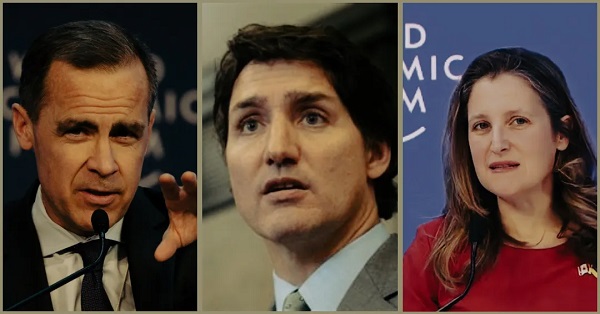
A new Statistics Canada report reveals widening income inequality and a shrinking middle class, all while Trudeau’s Liberals push policies that benefit the wealthy and punish working Canadians.
A newly released report from Statistics Canada on household economic accounts for the third quarter of 2024 confirms what many Canadians have long suspected—while the wealthiest continue to rake in profits, middle- and lower-income families are left struggling under the weight of economic policies that seem designed to work against them. The report, released today, paints a stark picture of a country where financial inequality is not just persisting, but growing.
The numbers don’t lie. Income inequality has increased, with the top 40% of earners pulling even further ahead of the bottom 40%. The gap in disposable income between these two groups expanded to 46.9 percentage points, up from 46.3 just a year ago. The highest-income households saw their disposable income rise by 6.8%, largely driven by soaring investment gains, while the poorest Canadians saw only a 3.7% increase, barely enough to keep up with the cost of living. Meanwhile, middle-income earners experienced sluggish wage growth of just 2.7%, well below the national average.
Despite declining interest rates, lower-income households found themselves paying more on mortgages and consumer credit, while the wealthy reaped the benefits of higher investment yields. The data shows that middle-income households, who are already feeling the squeeze from inflation and stagnating wages, saw their share of national income shrink.
The most revealing statistic is in net worth distribution. The top 20% of wealthiest Canadians control nearly two-thirds (64.7%) of the country’s net worth, averaging an eye-watering $3.3 million per household. Meanwhile, the bottom 40% hold just 3.3%, barely scraping by with an average of $83,189 in assets.
However, the real estate market has provided a rare silver lining for some lower-wealth households, as they were able to take advantage of slightly more favorable conditions to buy homes, increasing their net worth at the fastest pace. But even that gain is tempered by the reality that housing costs remain unaffordable for many, and young Canadians under 35 continue to pull back from homeownership altogether.
Let’s be clear—this isn’t happening by accident. This is what happens when you let a government of self-serving narcissists run the country into the ground. Justin Trudeau and his Liberal Party have spent nearly a decade dismantling the Canadian economy, pushing a radical, ideologically driven agenda that benefits their elite donor class while leaving working Canadians behind. And now, as the country crumbles under the weight of their incompetence, Trudeau is running for the exits, leaving the mess to whoever’s foolish enough to take the job.
And what do they do on the way out? Do they work to secure our economy? To make life more affordable? To protect Canadian workers? No. Instead, they decide to pick a fight with the United States. Donald Trump, who actually puts his country first—imagine that—announces a 25% tariff on Canadian imports, a move meant to address drug trafficking and illegal immigration, and what’s the Liberals’ response? Do they try to work out a deal? Do they negotiate in good faith to protect Canadian jobs? No. Instead, Chrystia Freeland comes out swinging, proposing retaliatory tariffs that will hurt Canadian businesses just as much, if not more, than they’ll hurt the U.S.
This isn’t about protecting Canada. This isn’t about securing the border or fighting for our economy. This is about pure, partisan politics. The Liberal base wants conflict with the U.S. Not because it’s good for the country, but because their fragile, self-righteous worldview depends on it. They hate Trump, and they hate that his America-First policies are actually working for American workers. So instead of finding a solution, they escalate. They antagonize. Because their base loves it. Not because Canada benefits, but because Liberals benefit.
Subscribe to The Opposition with Dan Knight .
For the full experience, upgrade your subscription.
And meanwhile, what’s Jagmeet Singh doing? The man who loves to talk about standing up for the working class? He could pull the plug on this corrupt government today with a non-confidence motion. But he won’t. Because, like every other member of the political elite in this country, he’s more interested in protecting his own position than actually doing his job. He makes noise about fighting for Canadian workers, but when the moment comes to act, he folds—again.
So here we are. The economy is in shambles. The wealth gap is growing. The middle class is getting squeezed to death. And the people in charge are too busy playing partisan games to do anything about it. Trudeau is leaving, but his legacy of economic destruction, division, and incompetence will live on through the same out-of-touch Liberal elites who put us in this mess.
But here’s the thing—Canada is better than this. We are a nation built on hard work, freedom, and opportunity, not on government control, reckless spending, and endless excuses. We are a country that thrives when its people—not bureaucrats in Ottawa—decide their own future.
It’s time for Canadians to take their country back. It’s time to put an end to this cycle of economic ruin and government failure. We don’t need more empty promises, more excuses, or more Liberal arrogance. We need an election. We need leaders who believe in the strength of Canadians, not the power of government.
Enough is enough. If we want a future where hard work is rewarded, where families can afford to buy a home, and where our economy is built to benefit all Canadians—not just the elite—then we must act. This country belongs to you, not the Liberal Party, not the special interests, and certainly not the self-serving political class in Ottawa.
Canada deserves better. And the time to demand it is now.
Subscribe to The Opposition with Dan Knight .
For the full experience, upgrade your subscription.
-
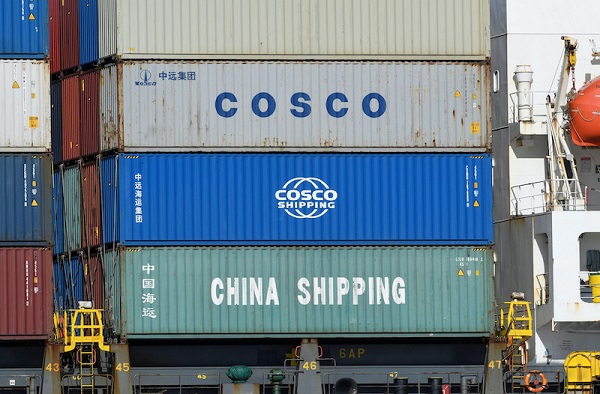
 Business1 day ago
Business1 day agoLong Ignored Criminal Infiltration of Canadian Ports Lead Straight to Trump Tariffs
-
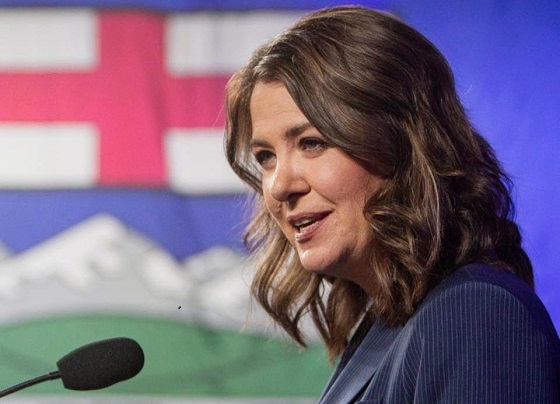
 Uncategorized2 days ago
Uncategorized2 days agoWhen America attacks
-
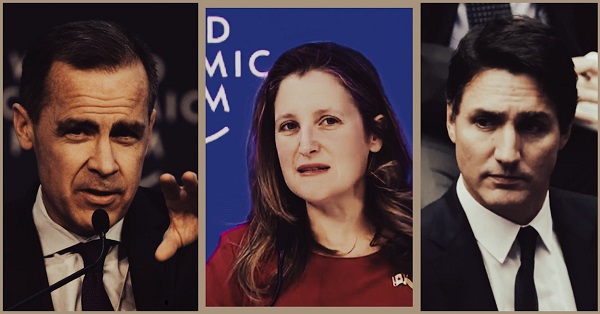
 Uncategorized2 days ago
Uncategorized2 days agoAll 6 people trying to replace Trudeau agree with him on almost everything
-

 Immigration1 day ago
Immigration1 day agoCanada must urgently fix flawed immigration security rules
-

 Alberta1 day ago
Alberta1 day agoWith $15 a day flat rate, Alberta transitions to publicly funded child care
-
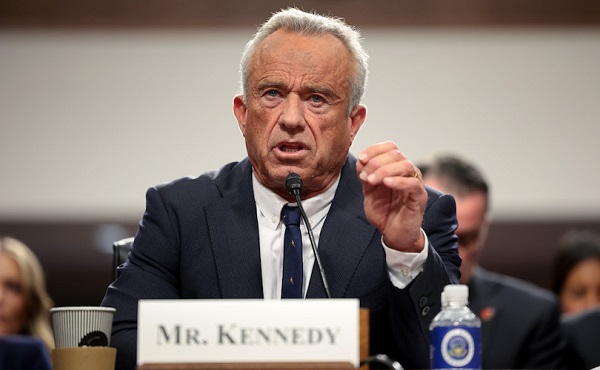
 International2 days ago
International2 days agoRFK Jr. fires back in defense of vaccine stance amid heated Senate confirmation hearing
-
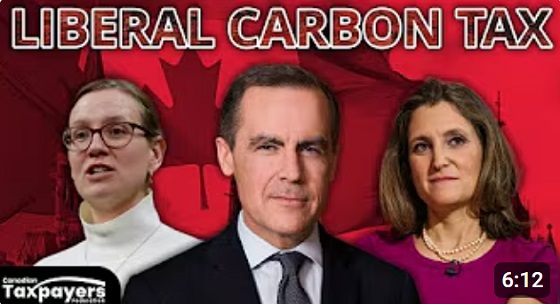
 Business1 day ago
Business1 day agoNo matter who’s in charge, Canadians want to ‘Axe the Tax’ immediately
-
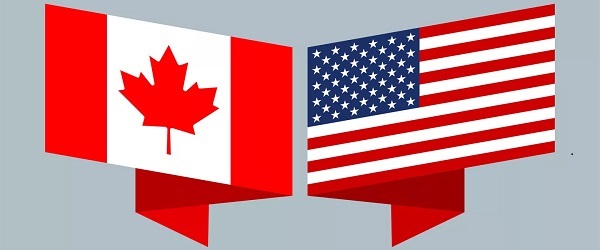
 Business2 days ago
Business2 days agoTrump’s executive orders represent massive threat to Canadian competitiveness






